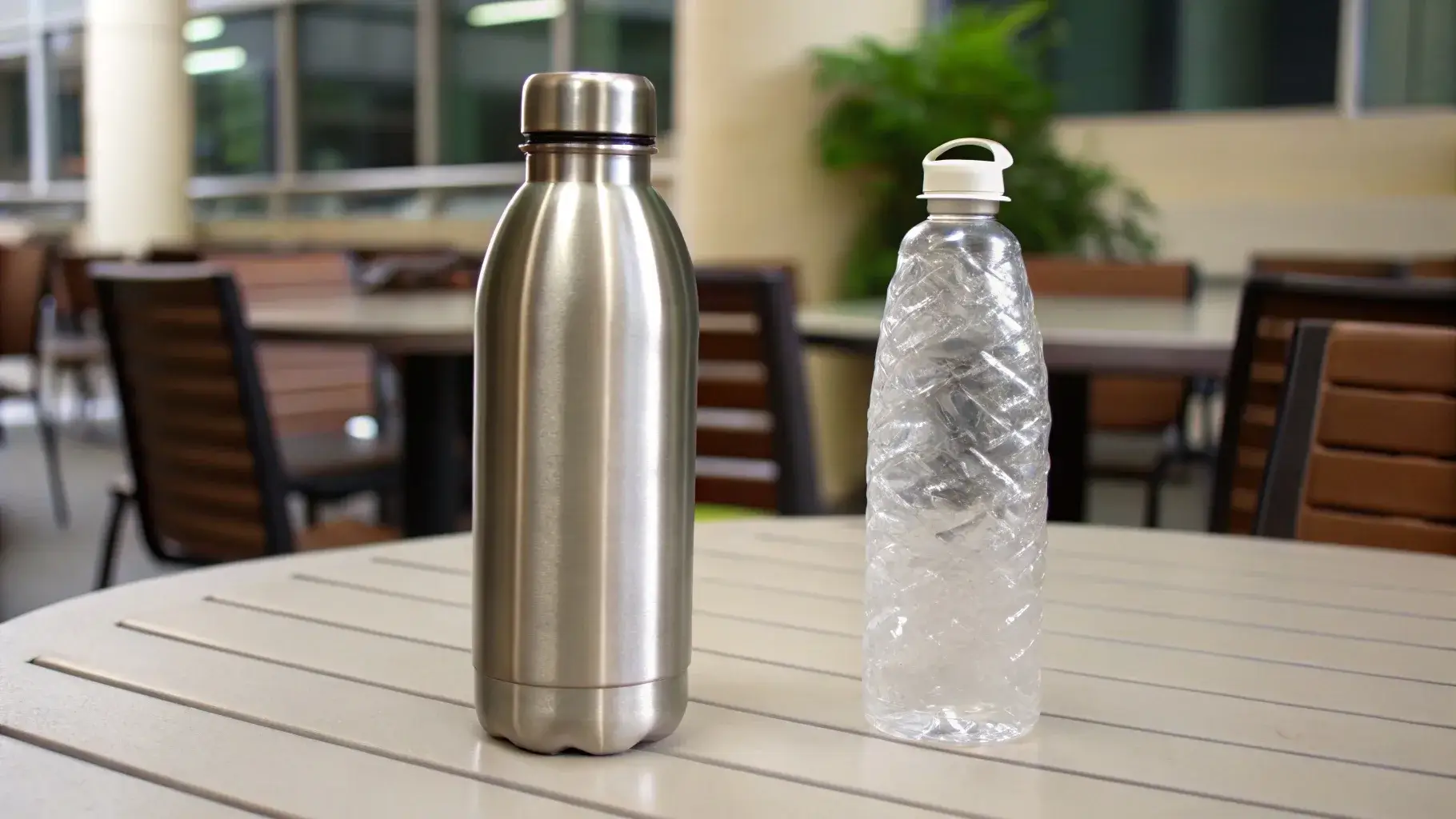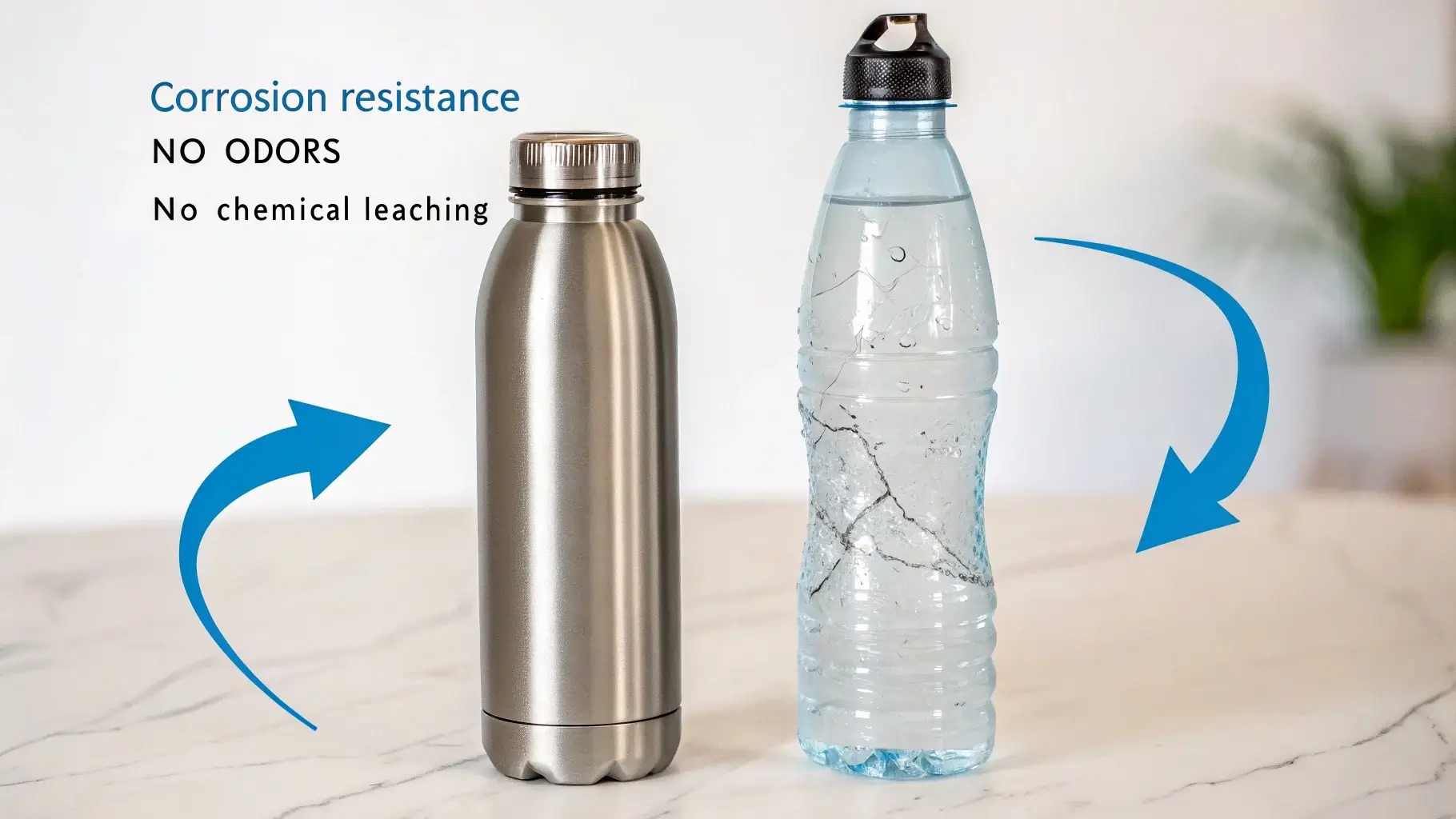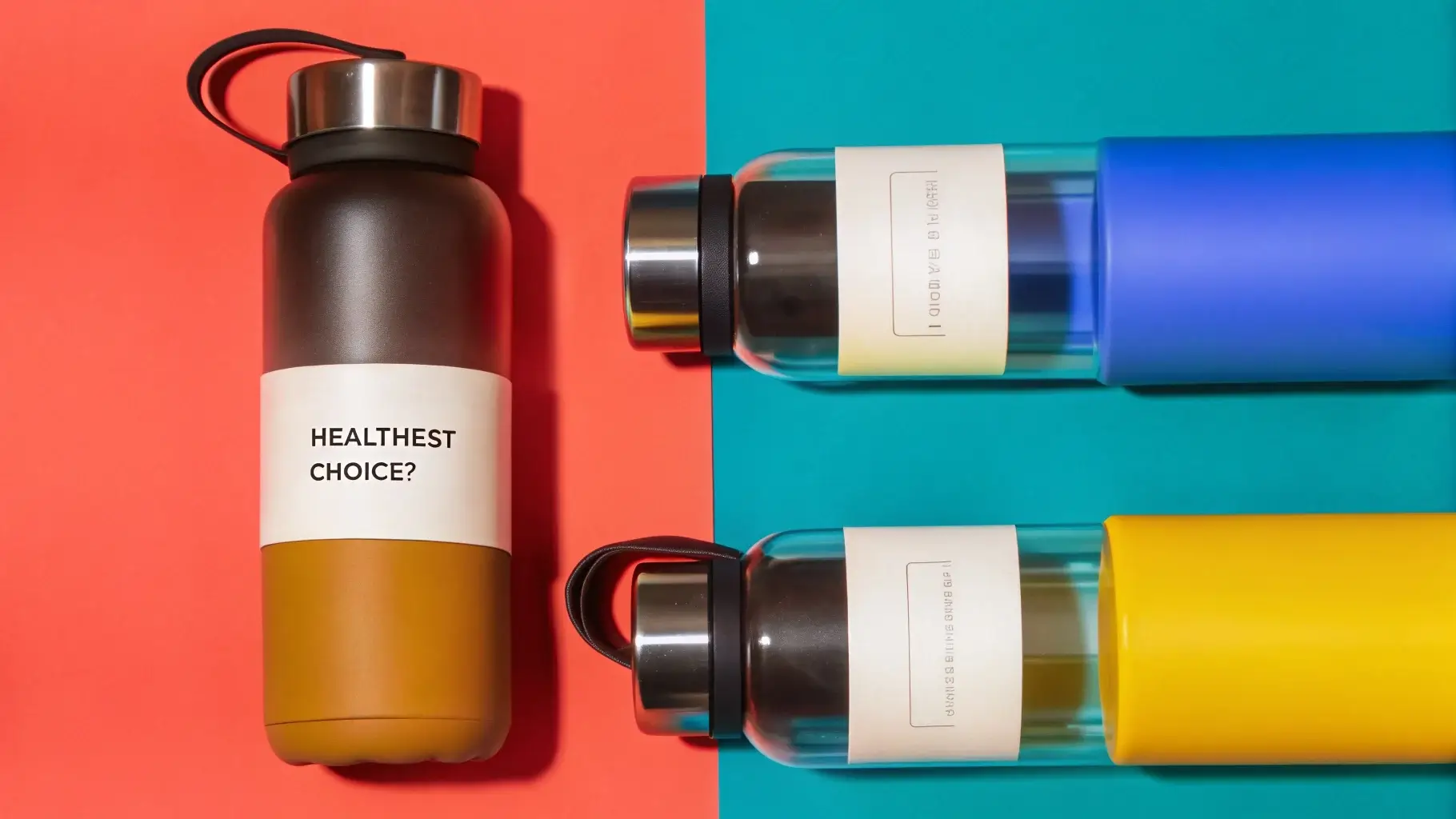
Many worry about flimsy drinkware and health risks. I plan to show how we can solve these fears.
Stainless steel provides robust, reusable, and food-safe advantages, while plastic wins on cost and light weight.
Continue reading to discover the facts behind these materials.
Is Stainless Steel Better Than Plastic Water Bottles?
Some doubt plastic’s long-term safety and durability. I believe stainless steel can solve these issues effectively.
Stainless steel resists cracks, odors, and potential chemical leaching that cheaper plastics might cause.

I have spent over 14 years working with stainless steel drinkware. My factory spans 18,000 square meters and houses five automated production lines, enabling us to produce more than 800,000 pieces daily. I see firsthand how stainless steel offers a more robust solution compared to typical plastics. Plastic can break or warp under heat, and some grades might leach chemicals if used repeatedly with hot liquids.
I often notice brands focusing on sustainability and quality. They look to stainless steel for a premium feel, better corrosion resistance, and improved taste retention. Studies from several market research firms, including those analyzing global consumer trends, show that many buyers prefer reusable products that convey environmental responsibility. Stainless steel meets those expectations by reducing the need for single-use plastics. It also offers diverse customization options, from powder coatings to laser-etched logos. Those features help businesses stand out with a modern look.
Yet, plastic remains an option for those who want lower upfront costs or need extremely lightweight products for short events. However, steel stands firm if you want a more durable, long-lasting alternative. I also notice fewer complaints when shipping steel bottles. They withstand compression and impact better than many thin plastic models. This reduces returns and preserves brand reputation. I think this combination of sturdiness and minimal chemical risk is why stainless steel is often considered superior for water bottles, especially for consistent, safe hydration.
What Is the Healthiest Material for a Water Bottle?
Consumers hear conflicting advice on bottle materials. I aim to simplify the truth about health and safety.
Glass, BPA-free plastic, and stainless steel rank high. Stainless steel often stands out for durability.

My experience involves daily discussions about food safety and certifications. I frequently reference international standards like FDA guidelines for stainless steel1 and LFGB, which verify materials are safe for direct contact with beverages. Stainless steel 304 or 18/8 is widely accepted as food-grade. It does not release toxins under normal usage conditions, and it tolerates temperature changes without breaking down. Glass is similarly inert, but it can shatter if dropped. BPA-free plastic may hold up for a while, but it can become scratched, which creates hiding spots for bacteria, and it might still absorb odors over time.
I often point out that stainless steel is nonporous. This property helps it resist stains and odors, maintaining a fresh taste for drinks. Some big brands rely on this aspect to offer premium water bottles that people can reuse for years. I also find that many eco-conscious consumers want a product that reduces their environmental impact. By choosing steel, they limit the use of disposable plastic. Studies from sustainability organizations2 suggest that switching to a sturdy reusable bottle can curb plastic waste significantly. This appeals to offices, gyms, and schools hoping to promote responsible choices.
Below is a short table:
| Material | Safety Rating | Durability |
|---|---|---|
| Stainless Steel | High, if 304-grade | Excellent |
| Glass | High, but fragile | Easily breakable |
| BPA-free Plastic | Moderate | Can degrade over time |
In short, the healthiest material depends on priorities. Glass is pure but delicate. Plastic is cheaper but less robust. Stainless steel stands in the middle, offering both safety and extended use. I see that everyday consistency makes it the go-to choice for those who balance health, utility, and brand image.
Conclusion
Stainless steel bottles provide durable, safe, and eco-friendly benefits, while plastic suits simpler budgets. I believe steel elevates quality and trust everywhere.
-
Read official FDA guidelines to understand why stainless steel is recognized as food-safe. Google query: "FDA guidelines for stainless steel food safety" ↩
-
Learn how sustainability efforts reduce plastic waste with reusable water bottles. Google query: "How reusable bottles help reduce plastic waste" ↩

